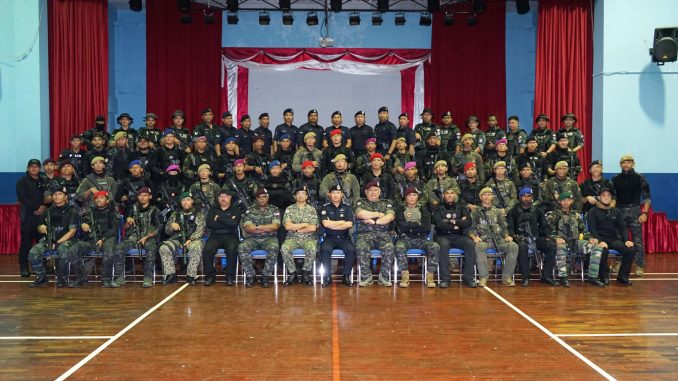
SHAH ALAM: Back in 2016, the-then Prime Minister DS Najib Razak stood up the National Special Operations Force (NSOF) to act as the primary response unit for terrorist incidents. Two years later the new government then – led by Tun Mahathir Mohamad – disbanded NSOF.
With the disbandment of NSOF, the primary responder to such incident reverted to the Royal Malaysian Police’s Unit Tindakan Khas/VAT 69. Malaysian Defence had posted on the disbandment, but it was taken offline on the request of several people.

The story of the disbandment is still available on Shephard Media though.
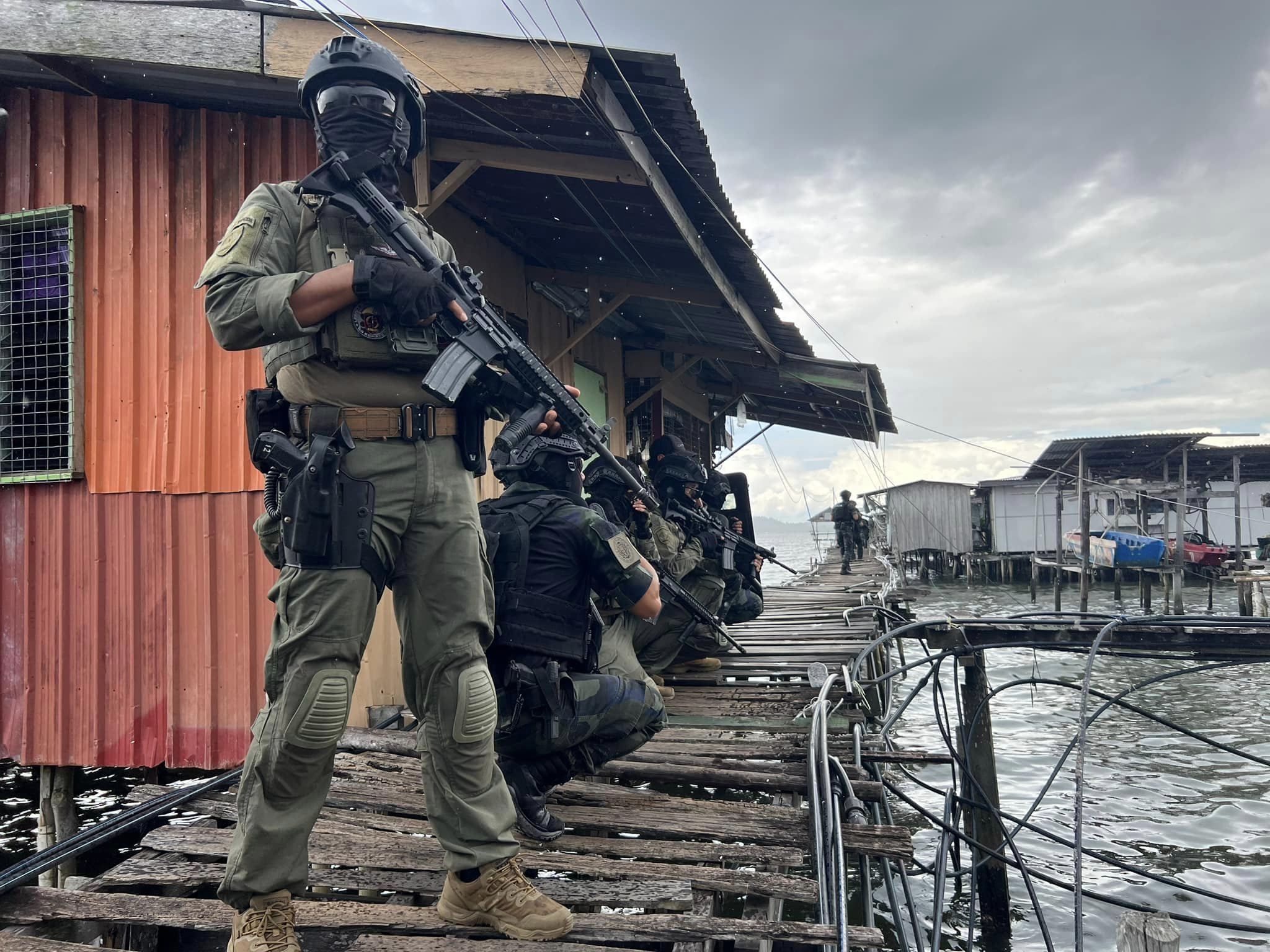
In January 2019, the then Chief of Defence Forces General Zukifli Zainal Abidin announced a new joint special operations unit -comprising of the services SF units – will be created to counter terrorist threats. The unit is now designated the Defence Special Operations Division (DOSD) which comes under the direct command of the CDF and will be deployed to back up the police’s primary counter terrorist units. DOSD first commander is now the commander of the GGK, Maj General Suhaimi Mat Wajab, who took over as the top commando on May 10.

Anyhow, the Eastern Sabah Security Command (ESSCOM) has a joint special operations unit which comprised operators from the military, police, and coast guard. According to a release by ESSCOM, its joint special operations unit came from the RMN Paskal, the police’s VAT 69, GOF Tiger Platoon, UTK, Marine Police’s Ungerin and Special Task Force and Rescue Team (STAR) from MMEA.
The release from ESSCOM:
LATIH AMAL ESSCOM PERKUKUH KOORDINASI PASUKAN KHAS PELBAGAI AGENSI DI ESS ZONE
Komander Eastern Sabah Security Command (ESSCOM), YDH DCP Datuk Victor B Sanjos menyempurnakan Amali Akhir Latihan Dalam Perkhidmatan (LDP) Pasukan Khas ESSCOM Bersama-sama Pasukan Elit dan Khusus Agensi Keselamatan di Zon Selamat Sabah Timur (ESS Zone) petang tadi di Markas Operasi Pasukan Polis Marin (PPM), Lahad Datu.
Buat julung kalinya, penganjuran latihan ini bertujuan mengkoordinasi Operasi Khas yang menggabungkan kepakaran, kesefahaman dan sinergi Pasukan-pasukan Elit atau Khusus daripada pelbagai agensi terdiri daripada Polis Diraja Malaysia (PDRM), Angkatan Tentera Malaysia (ATM) dan Agensi Penguatkuasaan Maritim Malaysia (APMM) bagi menghadapi sebarang bentuk ancaman di ESS Zone.
Dalam siri ini sebanyak enam agensi keselamatan di ESS Zone telah terlibat menjayakan LDP ini iaitu Pasukan Khas Laut (PASKAL) daripada Tentera Laut Diraja Malaysia, 69 Komando, Unit Tindakhas (UTK), Tiger Platoon Pasukan Gerakan Am (PGA), Unit Gempur Marin (UNGERIN) Pasukan Polis Marin Wilayah 4, Ibu Pejabat Polis Daerah Lahad Datu daripada PDRM dan Special Task Force and Rescue Team (STAR) APMM.
Kemuncak LDP yang bermula pada 23 Jun hingga 1 Julai 2024 ini ialah latih amal akhir berkonsepkan operasi khas dalam keadaan sebenar dilaksanakan di kawasan koloni setinggan sekitar Lahad Datu. Komander ESSCOM dalam kenyataan beliau menzahirkan penghargaan dan ucapan tahniah kepada Pasukan Khas, Perisikan dan Keselamatan ESSCOM atas kejayaan mengkoordinasi latihan tersebut dan berhasrat untuk memperluas penyertaan LDP ini kepada Jabatan dan agensi keselamatan serta penguatkuasaan yang lain.
Hadir sama Timbalan Komander ESSCOM, Brigadier Jeneral Mohamad Ismail bin Kamarudin, Ketua Staf Pasukan Khas, SAC Mohd Nasaruddin bin M. Nasir dan Pegawai-pegawai Kanan ESSCOM, PASKAL, UTK, VAT69, UNGERIN, Tiger Platoon, IPD dan STAR.
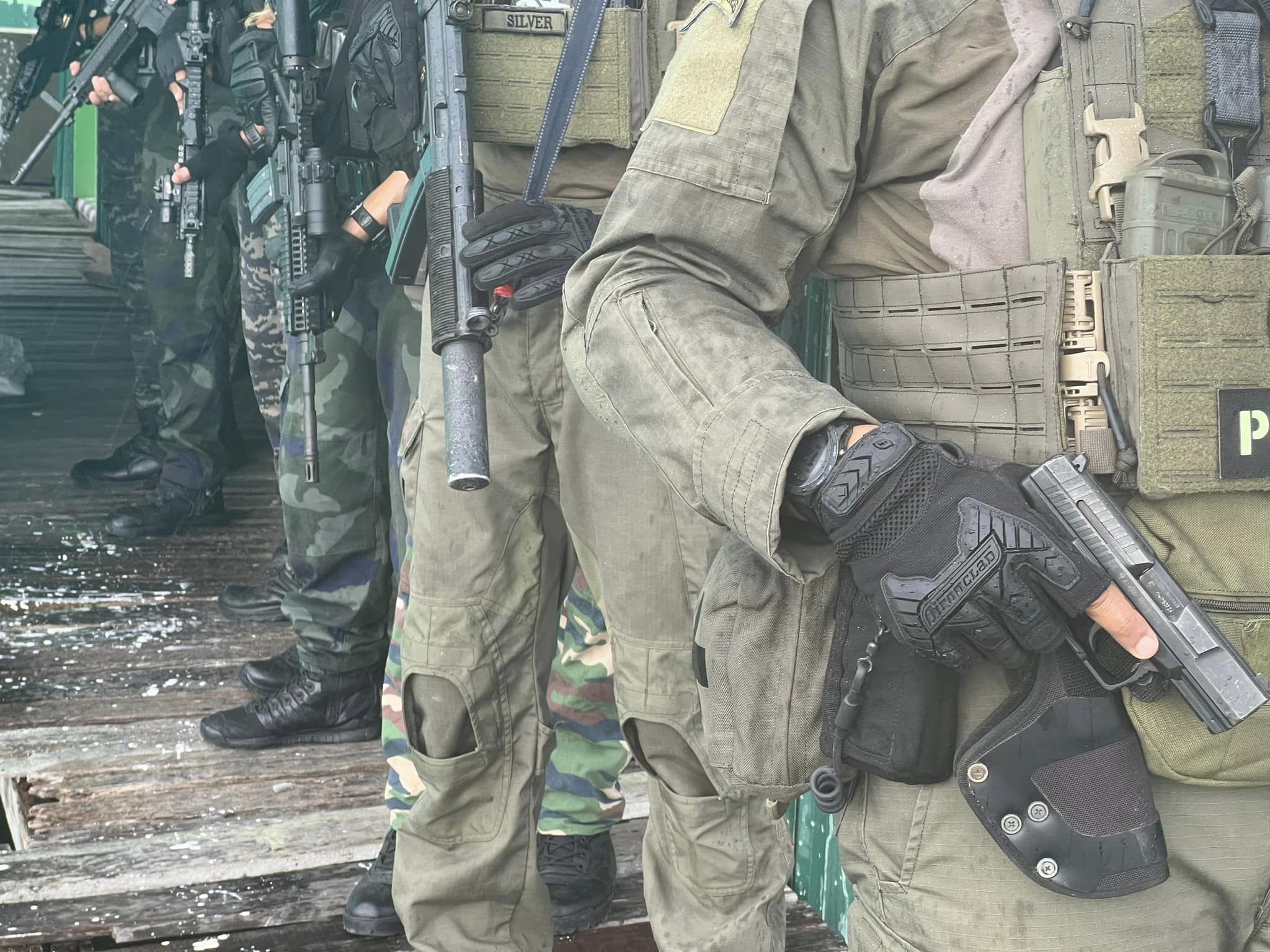
The release did not mention GGK but two officers with the familiar GGK beret were also photographed in an exercise conducted by ESSCOM which started on June 23 and ends on July 1. Perhaps, the GGK operators are not directly subordinated to ESSCOM but with the Joint Operations Headquarters 2 based in Tawau. Or they were left out by mistake. Posted below are the patches of the operators and their units involved in the ESSCOM exercise.
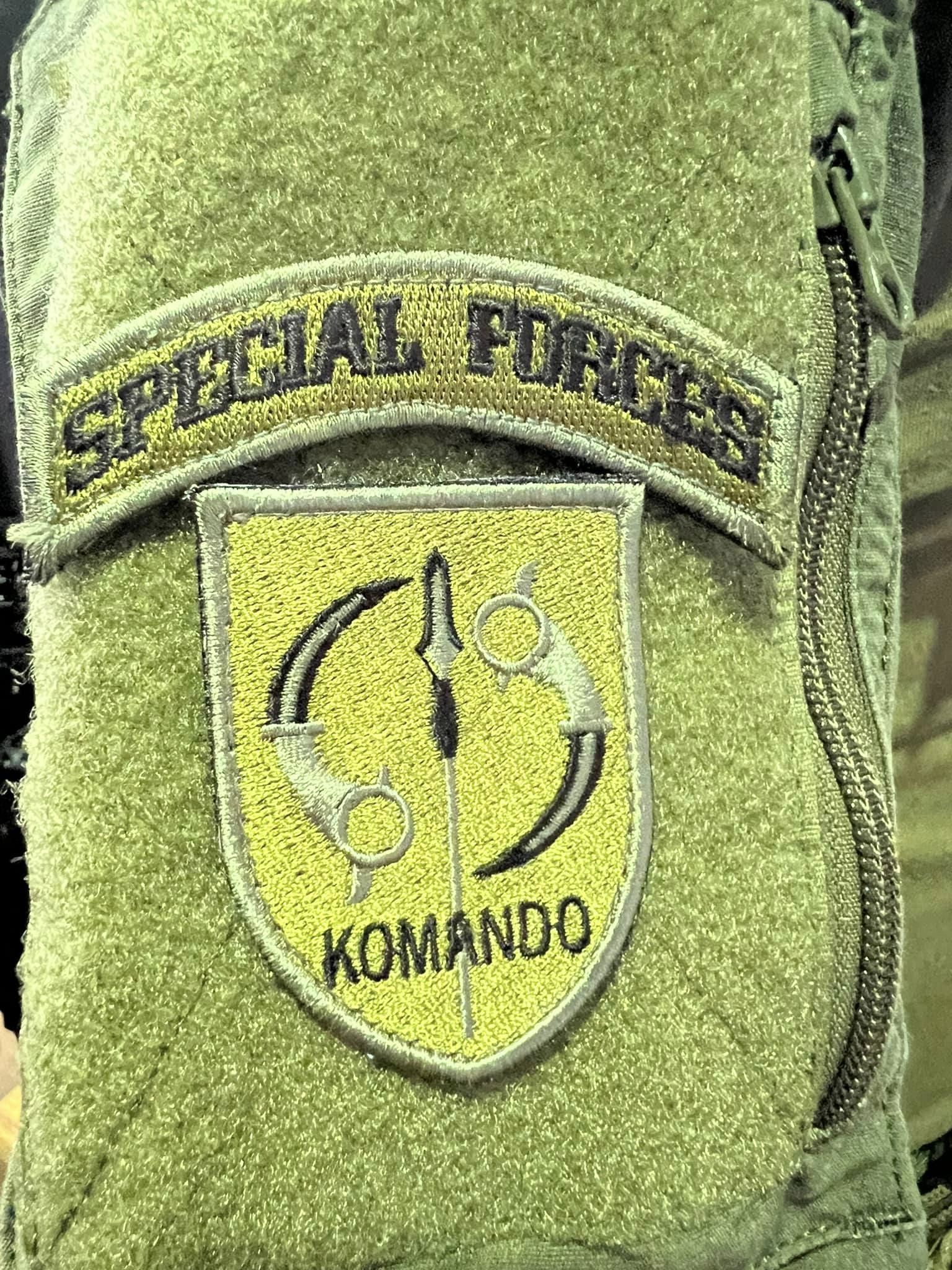
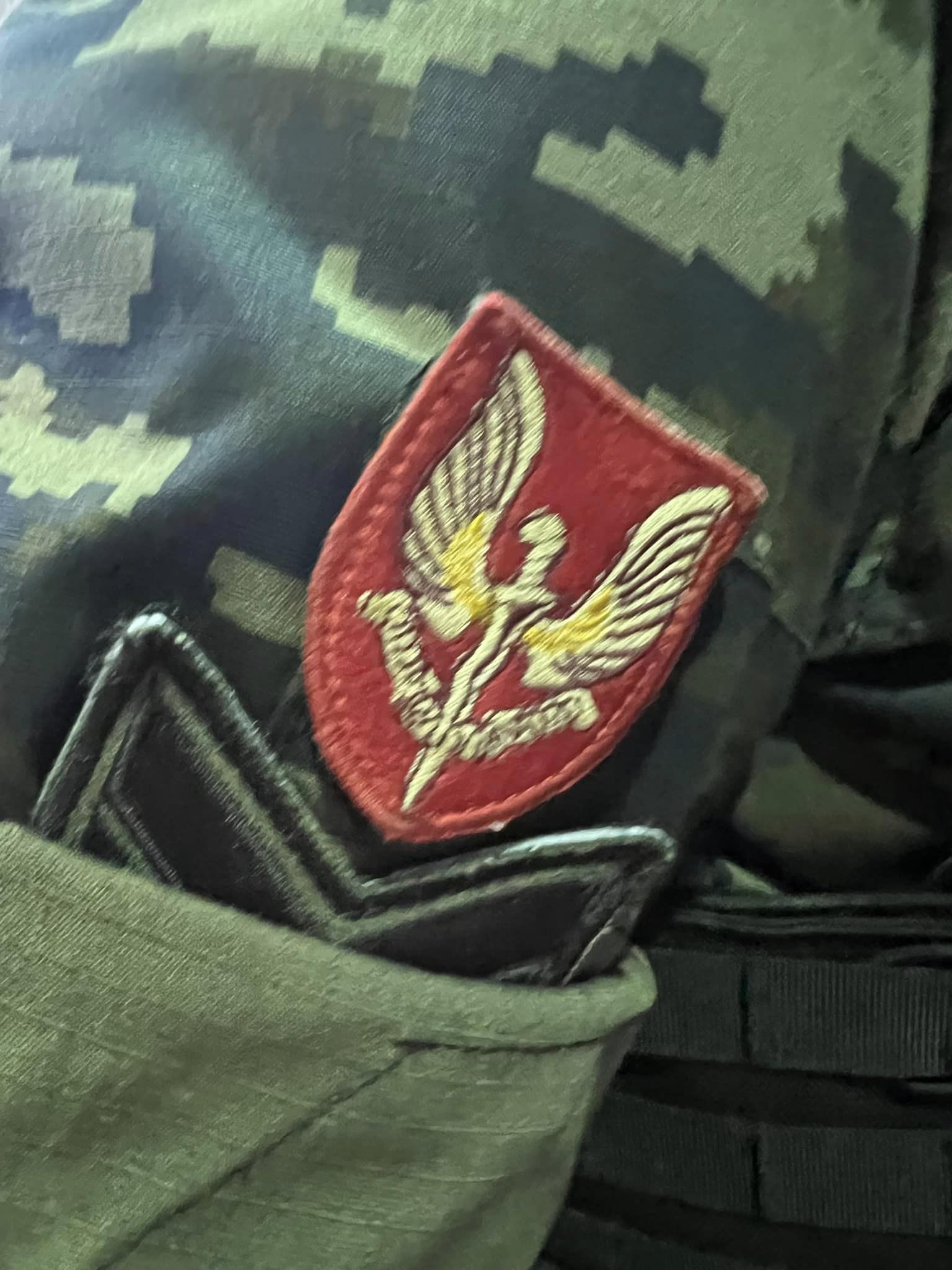
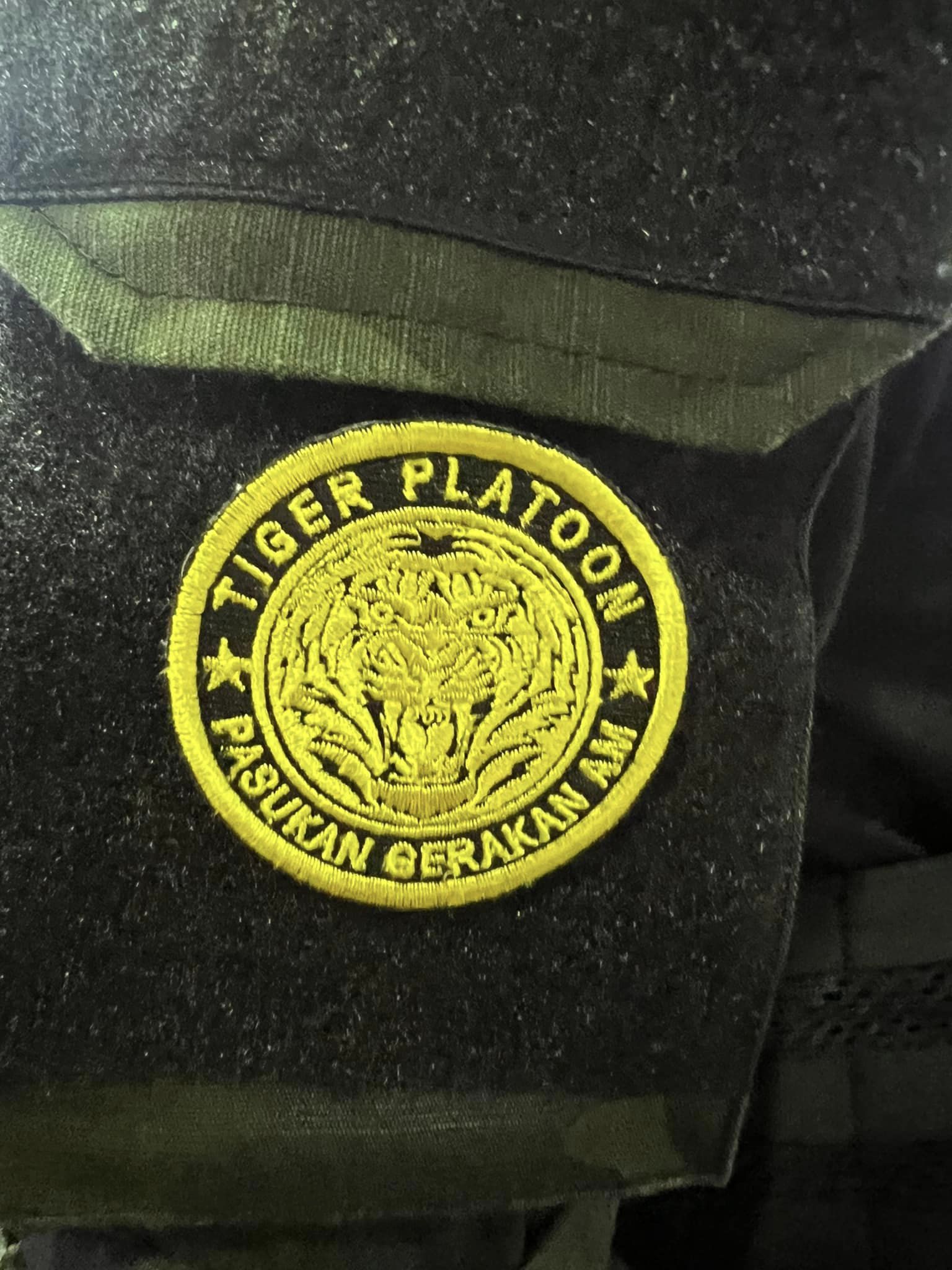
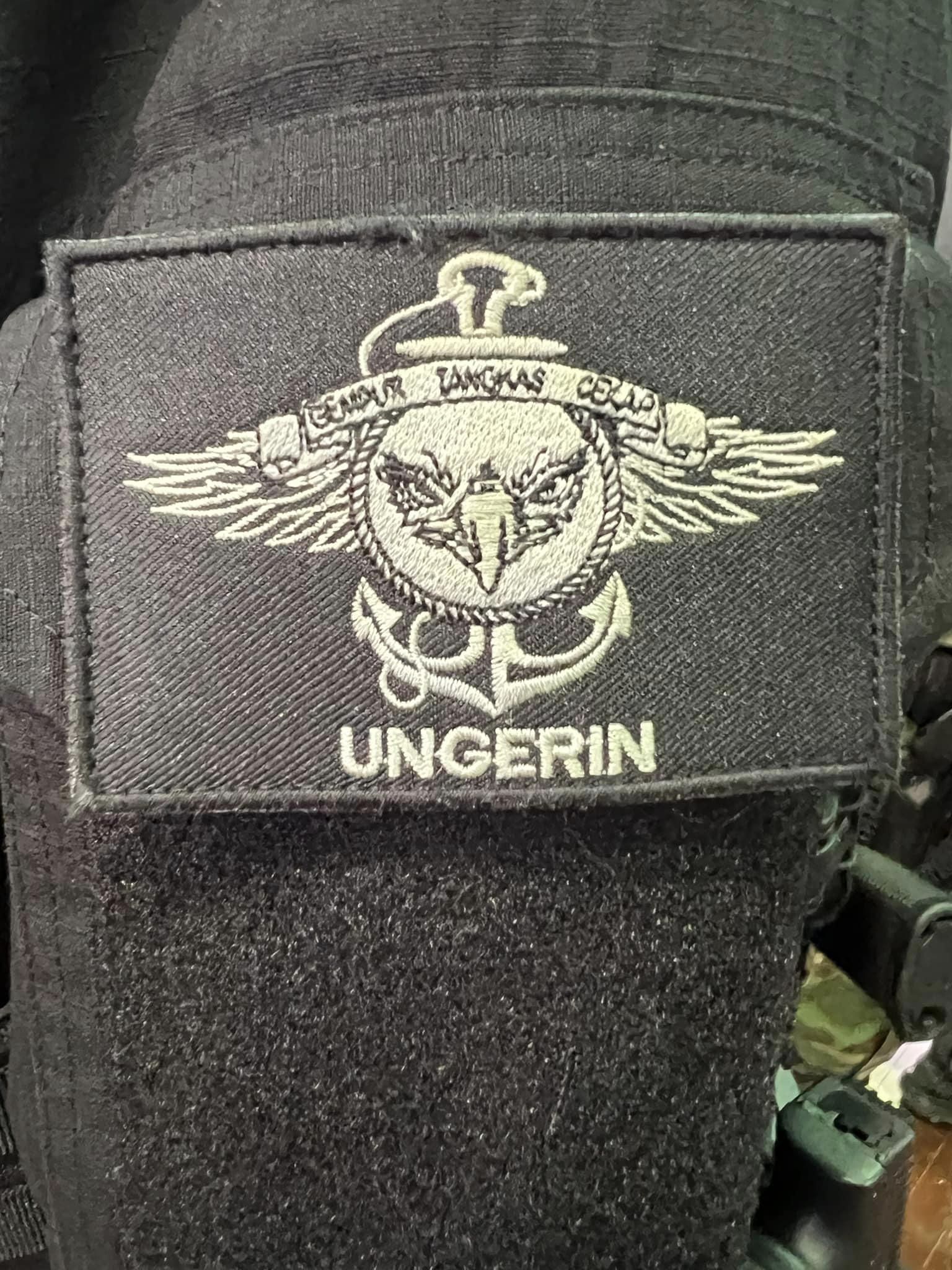


— Malaysian Defence If you like this post, buy me an espresso. Paypal Payment


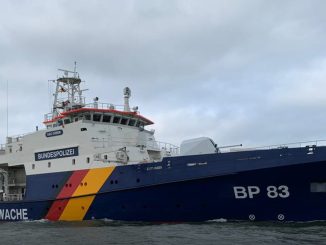
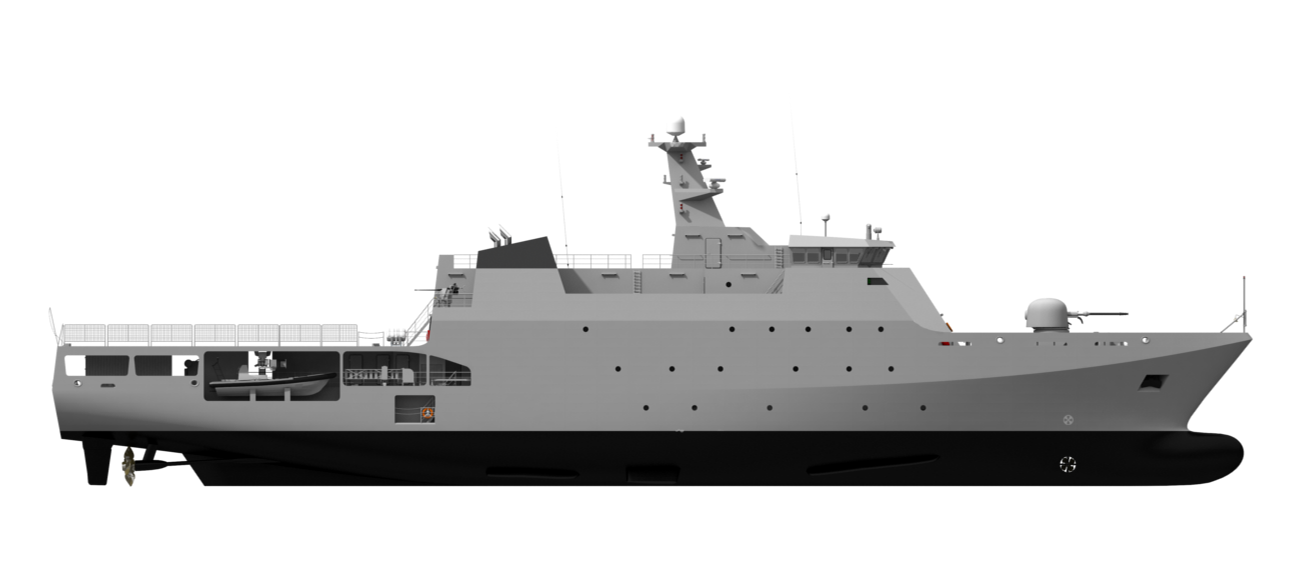
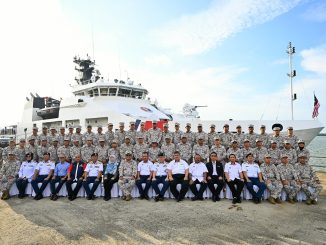
Interesting that one of the GGK operator wearing the old Harimau Belang camo
Of all the Malaysian Special Force, which is the Tier One or most elite? GGK or Paskal?
Its hard to say really as GGK has several units which specialised in various thing, CT, CI and water borne insertion. Paskal is a waterborne team. Its the same with VAT 69 which do CT, CI and water borne insertion.
So technically, GGK and VAT 69, CI and CT units are tier one teams. Paskal is a tier one waterborne insertion team.
Tom Tom,
Is there even such a thing as “most elite”? Different units do different things.
No one from PASKAU?
Nope
Paskau
Maybe next exercise Esscom needs laser guided bombs, then Paskau comes in.
With so many SOFs I wonder what differentiate their abilities to be differently tiered? Exclude the specialized tasks ie underwater warfare, & guiding laser bombs, majority has trained for CI & CT, so in these tasks what differentiates one SOF from another and if its just a matter of training harshness & suitability of personnel (ie if some are looser while Tier One are Ironman level), then what is stopping the so called looser teams from adopting the more harsh training & vetting regime so that they are better prepared for worst scenarios?
I do understand equipment (or lack of) do have an impact in terms of team effectiveness in certain tasks but the human factor should be more easily achieved.
nimitz –
‘Paskau
Maybe next exercise Esscom needs laser guided bombs, then Paskau comes in.’
Errr how did you come up with this conclusion? This doesn’t concern the Air Force.
”With so many SOFs I wonder what differentiate their abilities to be differently tiered?”
I don’t even know if they’re really ”tiered”. Sure there’s a distinction between military and non military units and a slight distinction between SF and SOF but ”tiered” military SF units?
”then what is stopping the so called looser teams from adopting the more harsh training & vetting regime so that they are better prepared for worst scenarios?’
Nothing. We also have to note however that if the “so called looser teams” had a “harsh training & vetting regime”; in other words being more selective; gaining the numbers needed would be major issue. As it is there is a major difference between on paper authorised strength and actual strength.Thank
My take on this tier thing is it’s more of an American thing. The US Army for ex has to my knowledge 3 special mission type units (Rangers, Green Berets, Delta) plus a few more obscure ones like the RRC so I guess it makes sense to have a tiered classification. And it seems to me that the higher you go up the tier totem pole the higher chances you’ll get at accessing more classified materials as well as less accountability.
Whereas on our side (Army) it looks like that we are taking the British approach, GGK having 3 regiments which mirrors the SAS, although in the case of the former all three are active duty while the latter case only one is active duty while the other 2 are in reserve. On a side-note, i think a better translation for GGK is Special Operations Group instead of Special Service Group.
Frankly I think that we have too many of these units, PDRM alone has 3-4 (UTK, VAT69, UNIGERIN, unsure whether Tiger Platoon is considered as such) and IIRC even Immigration has its own tactical unit. Maybe expand VAT69 to include a boat troop
Its a follow on from Marhalim mention that GGK & VAT69 are Tier One teams for CI & CT. So what makes the rest might not be up there with them?
Its like USA various SOFs; Seal Team 1-6, Delta Force, Green Berets, the CIA, FBI & NSA also has their clandestine SOF teams, really they do tasked for CI & CT but of course Seals are regarded as the premier numero uno as they have the most hellish of vetting (and most decorated?) so I am wondering if that is what differentiates ours as well.
“gaining the numbers needed would be major issue.”
On the whole, yes I agree. But if we only needed 1 complete team rather instead we have 5 SOF teams each with only a fifth of full complement (paper authorised strength vs actual strength), combined operating together (like in DOSD) they actual fulfill our SOF needs isnt it?
VAT69 also got boat troops. I previously thought Ungerin is just VAT69 boat troop but they are not.
”Its a follow on from Marhalim mention that GGK & VAT69 are Tier One teams”
Aware of that but as I questioned : ” don’t even know if they’re really ”tiered”. Sure there’s a distinction between military and non military units and a slight distinction between SF and SOF but ”tiered” military SF units?”
”of course Seals are regarded as the premier numero uno as they have the most hellish of vetting”
Not really. It’s just that we tend to hear more about SEAL Team 6. Delta Force and the Special Forces are just as capable or ”elite” in their own right and ”have the most hellish of vetting”. In the U.K. Royal Marine Commando selection can be just as challenging as SAS selection but the Royal Marine Commandos are not SF. I’ve met a SAS TA guy who was ex Para. For him Para P Company [the selection course] was way tougher than SAS selection.
”so I am wondering if that is what differentiates ours as well.”
Doubt it because they’re all SF and each does slightly different things; despite overlaps.
”But if we only needed 1 complete team rather”
One team which does all the mission sets and had to keep proficient for all the mission sets might be a bit too much. If it cold be done it would have been done; i.e. Israel would not have Sayaret Matkal and Flotilla 13 and Indonesia would not have KOPASSUS and KOPASKA.
BTW Gerak Khas and PASKAL trace their lineage to the Malaysian Special Service Unit [MSSU] which was mostly army but had a RMN element. This unit was later done away with after the Confrontation and Gerak Khas and PASKAL were later born. Would be nice to have a ”joint” SF unit but not practical.
ASM – ”Whereas on our side (Army) it looks like that we are taking the British approach, GGK having 3 regiments which mirrors the SAS,”
No …. The Gerak Khas Group has 3 regiments; one a regiment comprising a pair of light infantry commando units and the other one the 11th Special Service Regiment [our SAS equivalent]. Nothing to do with a ”British approach”. The 2 Commando battalions are structured after the Royal Marine commandos whom they’re based on but we don’t know how the 11th Special Service Regiment is structured. A unit which is really structured after the SAS is VAT 69 which of course was set up by the SAS.
ASM – ”Frankly I think that we have too many of these units,”
Which is why the Yanks created SOCOM and JSOC.